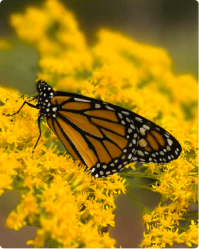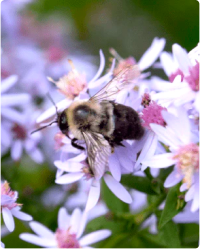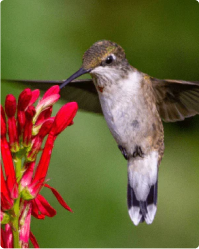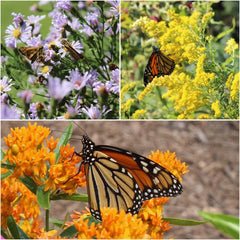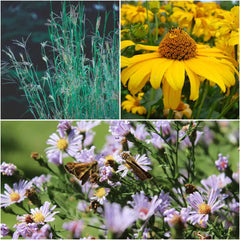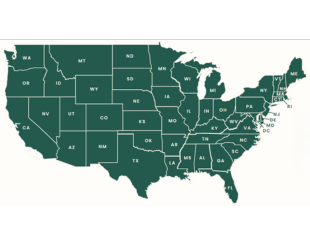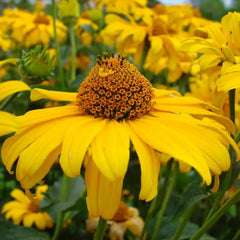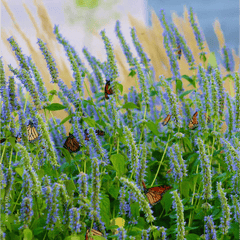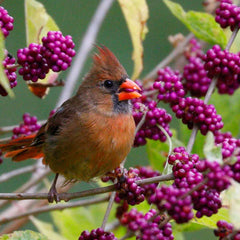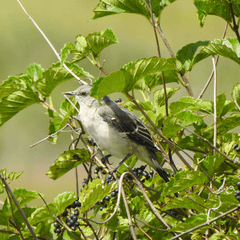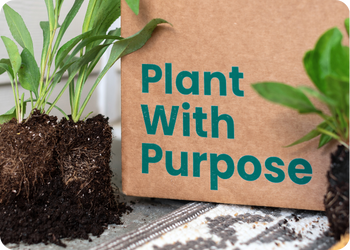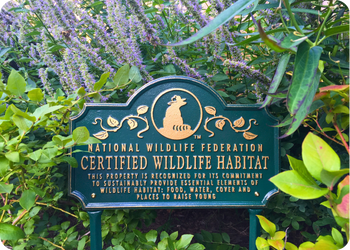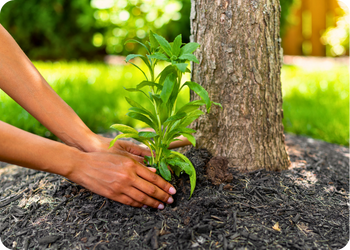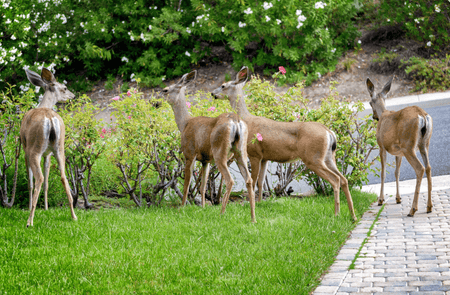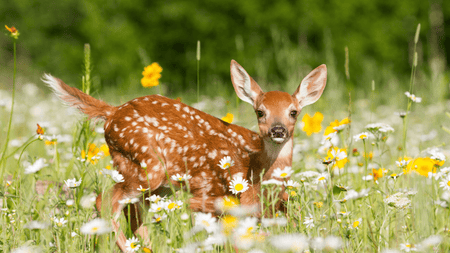The Ultimate Guide to Gardening in Pennsylvania

The Ultimate Guide to Gardening in Pennsylvania
Welcome to the ultimate guide to gardening in Pennsylvania! Whether you're an experienced gardener or just starting out, this guide will provide all the information you need to create a beautiful and thriving garden in the Keystone State.
Whether you're looking to improve your green thumb, create a pollinator garden, or just want some new gardening ideas, read on and discover the joys of gardening in Pennsylvania!
The climate and soil of Pennsylvania
To make the most of your Pennsylvania garden, it's essential to understand the state’s unique climate and soil conditions. Pennsylvania has a diverse topography, ranging from flat coastal plains to high mountain ranges, resulting in various microclimates. As a result, the weather and temperature can vary greatly, even within small regions of the state.
The state's soil is also extremely varied, mixing clay, loam, and sandy soils. Some areas have acidic soils, while others have a neutral or slightly alkaline pH. It's essential to understand your soil type and condition to choose plants that will thrive in your garden.
Overall, gardeners in Pennsylvania must be aware of the region's weather patterns and soil composition to make the most of their gardens. During the planting season, keep tabs on weather and soil moisture and water if necessary.

Pennsylvania gardening zones
The gardening zone of Pennsylvania varies throughout the state, but most of it falls under USDA Plant Hardiness Zones 5a to 7b. The western part of the state, including Pittsburgh, is mainly in Zone 6a. The central and eastern part of the state, including Philadelphia, is mainly in Zone 6b. Some higher elevations in the northern part of the state reach Zone 5a.
Understanding the Pennsylvania gardening zone is important because it tells you which plants best suit your area. Certain plants can only survive in specific temperatures, so gardening zones are based on the average annual minimum temperature.
Gardeners should consult the USDA's Plant Hardiness Zone map to determine which plants will thrive in their specific location. In Zone 5a, gardeners should focus on plants that can tolerate winter temperatures that fall as low as -20 degrees Fahrenheit. Some suitable plants for this zone include coneflowers, black-eyed Susans, and Grayleaf Goldenrod.
In Zone 6a, winter temperatures can drop as low as -10 degrees Fahrenheit. In Zone 6b, winter temperatures typically range from -5 to 0 degrees Fahrenheit.

Regardless of your specific Pennsylvania gardening zone, many resources are available to help you choose the right plants and achieve a successful garden. Try our ZIP code native plant finder to discover the best native plants for your Pennsylvania garden!
Preparing your garden bed in Pennsylvania
Before planting in any garden, preparing the bed is essential, and Pennsylvania gardens are no exception. Here are the basic steps to take to ensure that your garden beds are ready for planting:
Clear the area
First, you must clear the area of any debris, rocks, or weeds. This step can be time-consuming, but it's ultimately worth it. Once you've cleared the area, you can begin preparing the soil.
Test the soil
Pennsylvania has various soil types throughout the state, and it's essential to know what type of soil you have in your garden. Testing the soil can help you determine the pH level and any nutrient deficiencies or imbalances in it. You can do this by purchasing an at-home soil test kit or sending a sample to your local Cooperative Extension Office.

Level the soil
Once you've amended the soil, you need to level it out. This will help ensure that water doesn't pool in low spots and that the soil surface is smooth for planting. Use a garden rake to level out the soil.
Choosing the right plants for your garden
Choosing the right plants for your garden is one of the most important aspects of gardening. Pennsylvania has some unique factors to consider when selecting plants such as temperature fluctuations, soil conditions, and sunlight exposure. Below is a guide to help you choose the right plants for your Pennsylvania garden, ensuring success and a lush landscape.
Understanding your climate zone
The climate of Pennsylvania can vary significantly from region to region. It is crucial to know your region's climate zone to ensure that the plants you choose are well-suited for your area. For example, if you live in the western part of the state, you may experience frequent snowfall and cold temperatures. However, if you live in the eastern part of the state, your climate will be milder with less snowfall.
Types of plants to consider
When choosing plants for your garden, always consider Pennsylvania native plants as the best option. These plants are adapted to the natural climate and soil conditions in Pennsylvania, making them easier to grow and care for. Some popular native plants for Pennsylvania include cone flowers, purple lovegrass, and black-eyed Susans. And many Pennsylvania native plants, such as milkweed and grayleaf goldenrod provide nectar and habitat for bees, butterflies, and other pollinators.
Consider soil and sunlight requirements
Before selecting plants, consider the soil type and the amount of sunlight your garden receives. If your soil has a high clay content, opt for plants that do well in clay soils. If your garden has a lot of shade, choose plants that do well in shaded areas such as the Great St John’s Wort. For sunnier locations, choose sun-loving plants such as Black-Eyed Susans, and the Great Blue Lobelia, which can be found in our Pollinator Power Plant Collection.
Remember, gardening is all about experimentation, so don't be afraid to try new things and make mistakes. With a bit of guidance and know-how, you can create a beautiful garden that thrives in the Pennsylvania climate.
Best time to plant in Pennsylvania
Timing is everything if you live in Pennsylvania and want to start a garden. While some plants can grow year-round in Pennsylvania, others need specific conditions to thrive. Here are some quick pointers to help you choose the best time to plant in Pennsylvania:
Early spring
Fall or early spring are the best times to plant woody trees and shrubs, as well as herbaceous perennials, while they are still dormant.
Late spring
After the risk of frost has passed in mid-late spring, plants started as seeds indoors can be planted, as well as tender annuals.. Late April or early May is the best time to get these plants in the soil. They will grow all summer and establish strong roots.
Fall
Fall is another excellent season to plant in Pennsylvania. The soil is warm so plants will thrive in cooler temperatures and be ready to emerge in late spring. You can plan the amazing colors of your garden every season by knowing when to expect emergence from your native plants each year.

Remember, weather conditions can vary in Pennsylvania, so always watch the forecast before planting. Your Pennsylvania garden will yield beautiful and bountiful results with proper timing and care!
Watering tips
Maintaining the proper hydration for your plants is key to a thriving wildlife habitat garden in Pennsylvania. Here are some tips to maximize watering and irrigation effectiveness:
-
Plant natives that don’t require watering: One of the best ways to conserve water is to plant natives that are adapted to the natural soil moisture and weather conditions. Once they get established, they generally don’t require watering.
- Use a hose or watering can: Watering with a hose or watering can delivers a large volume of water directly to the soil and minimizes water evaporation. Avoid watering from overhead, as this can damage the foliage and promote diseases.
- Water in the morning: It's best to water your plants in the morning before the sun gets too hot. This allows the water to reach the roots before evaporating and decreases the likelihood of fungal growth.
- Check the soil: Use a soil moisture meter or a simple finger test to determine when to water. Insert your finger into the soil and water only when the top inch feels dry. Overwatering can lead to root rot and other fungal diseases.
Remember, too little water is just as bad as too much. Finding the right balance is essential to keeping your Pennsylvania garden thriving.
Tips for container gardening in Pennsylvania
If you’re a fan of gardening but lack the space for a large garden, container gardening is an excellent option. Container gardening can be a perfect way to cultivate a wide range of Pennsylvania native plants using containers of various shapes and sizes. Here are some tips that will help you achieve a successful container garden in Pennsylvania.
Choose the right containers
- Choose containers that can withstand Pennsylvania's weather conditions. You'll want to choose containers that are made from durable materials such as ceramic, metal, or plastic.
- Ensure your containers are large enough for the plants you want to grow. Consider how big the plant will grow, and choose a container that will allow for the roots to spread.
- Containers must have adequate drainage holes to avoid waterlogging, leading to root rot. Some plants, like the Coastal Azalea Shrub, require robust drainage to thrive, thanks to their shallow roots.
Position your containers in the right place
- Some plants require full sun, like the Pennsylvania native plant favorite, the Orange Butterfly Milkweed. If you’re planting those, place your containers in a location that receives at least six hours of direct sunlight daily.
- If you live in an area with scorching summer temperatures, place your containers in an area that receives partial shade during the hottest part of the day.
Choose the right plants
Always choose Pennsylvania native plants that are well-suited to Pennsylvania's growing conditions. Consider the amount of sunlight plants need and whether they're well-suited for container gardening. Once established, native plants need less maintenance over time.
Following these tips, you can grow a thriving container garden to support pollinators and other wildlife in Pennsylvania.
Garden tools and equipment every Pennsylvania gardener needs
Gardening in Pennsylvania can be fun and rewarding, but it requires the right tools. Here are some essential tools that every Pennsylvania gardener needs:
- Gloves: Protect your hands from punctures, cuts, and dirt with good gardening gloves.
- Trowel: A trowel is a small, handheld gardening tool perfect for planting bulbs and seedlings.
- Pruner: Pruners are used to cut back dead or overgrown plants, making new growth easier.
Useful garden equipment for Pennsylvania gardeners
In addition to the essential tools, some gardening equipment can make your life as a Pennsylvania gardener easier. Here are some examples of nice-to-have garden equipment:
- Wheelbarrow: A wheelbarrow can help move your gardening tools and equipment around your garden, or transport cleared-up debris.
- Hose and watering can: Pennsylvania can be dry in the summer, and your garden will need plenty of water. A quality hose or watering can will help you ensure your garden gets the water it needs.
Investing in high-quality garden tools and equipment will make gardening more fun and efficient, and it will also help you achieve a beautiful and successful Pennsylvania garden.
Remember, choosing the right tools and equipment is essential, as is their upkeep. Regularly maintaining your garden tools and equipment is essential to keep them in good condition and ensure they serve you for many growing seasons.
Gardening on a budget in Pennsylvania
Enjoying gardening in Pennsylvania does not have to break the bank, and you can get started with only a few essential tools and supplies. Here are some tips for thriving with a green thumb without spending much.
Start with the basics
- Choose plants that thrive in your area and climate, as they won't need costly maintenance or extensive care. They also return year after year!
- Buy plants in a collection rather than individually. You’ll want a variety of plants that bloom at different times throughout the year.
Get creative with containers
Don't have space or money for a large garden? Container gardening is an excellent alternative that still provides the satisfaction of watching something grow from scratch. Planting in containers also allows you to experiment with different plants, herbs, and vegetables. Here are some low-cost ideas:
- Recycle milk jugs, soda bottles, or old buckets by drilling drainage holes in the bottom and adding soil or potting mix.
- Search for second-hand containers at garage sales or thrift stores.
- Repurpose old furniture or wooden pallets as shelving for your containers.
Join gardening communities
Beyond saving money, connecting with other gardeners in your neighborhood or online communities is an excellent way to learn new techniques and tricks from fellow enthusiasts. It’s amazing how much more you can cultivate and grow when you have others by your side. Here are some places to connect:
- Check out local gardening clubs or groups in your community
- Follow local gardening blogs or Facebook groups for your area
Gardening can be a fulfilling and therapeutic activity that doesn't have to require a significant investment. Following these tips, you can cultivate a beautiful garden on any budget in Pennsylvania. Be sure to use #GardenForWildlife when you post.

Landscaping your Pennsylvania garden
Landscaping your garden is important in creating a visually appealing and functional space. In Pennsylvania, the climate and terrain can pose some unique challenges, but with the proper planning and execution, your garden can thrive.
Consider the climate
When landscaping in Pennsylvania, keeping the climate in mind is important. The state experiences various temperatures and weather conditions throughout the year, so gardeners should choose plants that are well-suited to their specific location. This may include cold-hardy plants that can withstand frost and snow in the winter and drought-tolerant varieties for the hot summers.
Add native plants
Incorporating Pennsylvania native plants into your garden is not only good for the environment, but it can also make landscaping easier. Native plants are adapted to the local soil and climate, requiring less water and maintenance than non-native species. Plus, they attract local wildlife and can give your garden a unique sense of place.
Create functional spaces
While the aesthetics of your garden are important, it's also essential to consider the functionality of the space. Consider creating outdoor dining or relaxation areas and pathways for easy navigation. Incorporating lighting can also add ambiance and extend the use of your garden into the evening hours.

By thinking strategically and creatively, you can create a stunning landscape that works for your lifestyle and enhances the natural beauty of Pennsylvania.
Gardening resources for Pennsylvania gardeners
Whether you are a seasoned gardener or a beginner, finding the right resources specific to Pennsylvania can be overwhelming. Fortunately, many gardening resources are available in the state to assist you in creating a beautiful and successful garden. From online resources to local garden centers and clubs, Pennsylvania offers a wealth of information to help you along the way.
Online gardening resources
One of the easiest ways to find information on gardening in Pennsylvania is through online resources. The Penn State Extension website offers free information and advice on gardening specific to Pennsylvania. You can also find gardening tips and advice on the Pennsylvania Horticultural Society website or the Pennsylvania Department of Agriculture website.
You can also check out the National Wildlife Federation’s website, which has a lot of useful resources and information to help with your habitat garden. There’s also the Pennsylvania Native Plant Society (which is also a club as much as an online resource), who also provide a lot of information for Pennsylvanians who want a more natural garden.
Garden clubs
Joining a garden club in Pennsylvania can be a great way to connect with other gardeners and gain valuable knowledge and advice. Many garden clubs in Pennsylvania offer meetings, workshops, and other events throughout the year. The Garden Club Federation of Pennsylvania can help you find a garden club near you, and there are over 100 community gardens in Pennsylvania!
Pennsylvania offers various resources to assist gardeners in their gardening journey. With a bit of research, you can access the right online resources, find an online list of native plants in Pennsylvania, or join a garden club to gain valuable knowledge and advice. Happy gardening!
The anti-lawn movement in Pennsylvania

How it works
An anti-lawn garden is simply reducing the size of your lawn, or replacing it entirely, usually by focusing on native plants already adapted to your region's climate, meaning they require less work and water. These plants come in various beautiful colors and sizes, adding aesthetic value to your garden. You may also add vegetables or fruit trees to your anti-lawn garden, making it appealing and practical.
The benefits
There are several advantages to embracing the anti-lawn movement in Pennsylvania. First, it encourages biodiversity by providing a habitat for birds, bees, butterflies, and other beneficial insects. Secondly, it reduces the negative environmental impact of traditional lawns, such as the use of fertilizers and pesticides that pollute waterways.
Of course, having less (or no!) lawn also helps to lower your water bills since native plants typically require less water than conventional lawns. And let’s not overlook the fact that lawn care equipment causes terrible air and noise pollution. Reducing your lawn reduces the need a lot of that equipment, including mowers, weed-wackers, and blowers.
An anti-lawn garden is an excellent investment for your wallet, health, and the environment.
| Pros | Cons |
| Reduces environmental impact | May not be allowed in some residential areas |
| Increase biodiversity | Requires some initial investment and planning |
| Cost-effective in the long run. | May take time to establish and look aesthetically pleasing. |
Transitioning to an anti-lawn garden in Pennsylvania is practical and beneficial for the environment and your pocket. With the proper planning, you will have a beautiful and sustainable garden for years to come.
Monarch butterflies and Pennsylvania
Monarch butterflies are an iconic species known for their vibrant orange and black wings. They are also important pollinators that help to support the growth and diversity of plant life in Pennsylvania. Unfortunately, monarch populations have declined in recent years due to habitat loss and climate change. Here are some ways to help protect the monarch butterfly in Pennsylvania.
Plant milkweed
Milkweed plants and monarch butterflies rely on each other. Milkweed is the only plant that monarch butterflies lay their eggs on because it’s the only plant that monarch caterpillars feed on before they form their chrysalis. By planting milkweed in your garden, you can help provide crucial habitat for monarchs to thrive. Native milkweed species growing well in Pennsylvania include common, swamp, butterfly, and whorled milkweed.

Avoid pesticides
Pesticides and herbicides are harmful to all pollinators, including monarch butterflies. They can kill monarchs directly or destroy their habitat by killing off the plants they rely on for food and shelter. Instead, use natural pest control methods such as companion planting or releasing beneficial insects to target harmful pests.
Get involved
Becoming involved in local conservation efforts can also help protect monarch butterflies in Pennsylvania. Organizations like the Pennsylvania Chapter of the North American Butterfly Association or the Pennsylvania Department of Conservation and Natural Resources offer opportunities to volunteer and help protect and track monarch populations in the state. Encourage your local government to consider the National Wildlife Federation’s Mayors’ Monarch Pledge.
By taking simple steps like planting milkweed and avoiding pesticides, you can make a big difference in the survival of monarch butterflies in Pennsylvania.
How can climate change impact gardening in Pennsylvania?
Climate change can seriously impact gardening in Pennsylvania as it alters the timing and patterns of precipitation and temperature. This can result in changes in the growth cycles of plants, increased frequency and severity of extreme weather events such as droughts, floods, and storms, and the potential emergence of new pests and diseases.
To combat the effects of climate change, gardeners in Pennsylvania can make various adaptations, such as selecting Pennsylvania native plants that are well-adapted to the climate of the region, using drip irrigation systems when watering is necessary to reduce water use, and planting windbreaks to protect plants from harsh winds.
Gardeners in Pennsylvania can also reduce their carbon footprint by using organic and sustainable gardening methods that minimize the use of fossil fuels and synthetic fertilizers, reducing waste by recycling, and choosing renewable energy sources for their gardening activities.
Final tips
- When selecting plants, choose plants that do well in Pennsylvania's hardiness zones.
- Start small and grow gradually as you develop your gardening skills.
- Consider using natural pest control methods such as companion planting.
- Don't forget to take care of yourself while gardening, wear sunscreen and a hat, and keep yourself hydrated.
Get involved in your community
If you want to enhance your gardening experience, consider getting involved in your local community. Many cities and towns in Pennsylvania have community gardens where you can grow your own produce, connect with other gardeners, and learn new skills. Joining a local gardening club or attending events like lectures and workshops can provide you with valuable resources and support. Be sure to use #GardenForWildlife when you share your Pennsylvania habitat garden.
Get to the garden!
If you're considering starting your own garden in Pennsylvania, we hope this guide has given you a valuable starting point. Remember, gardening is a process and requires patience and persistence. Don't be discouraged if things don't work out the first time around.
Gardening can be a rewarding and enjoyable hobby, providing you with a deeper connection to the earth. We hope this guide has given you the tools and resources needed to start your gardening journey in Pennsylvania!
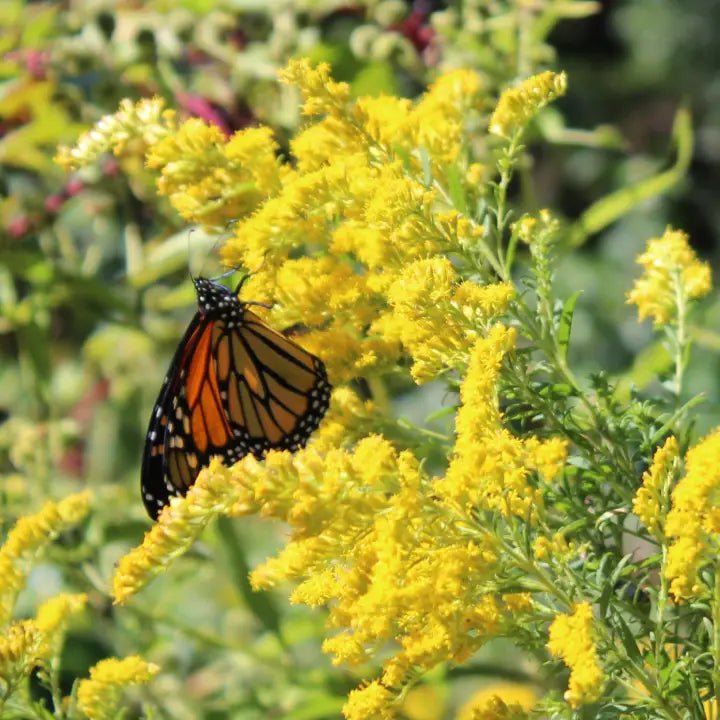
Find Native Plants by Zip Code
We took the guesswork out of planting native. Check your zip to see what ships!
